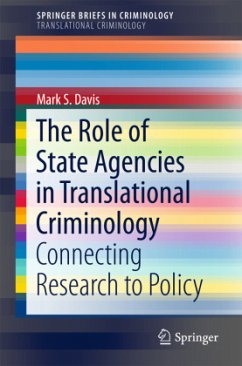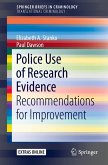This Brief discusses the role of state-level criminal justice organizations in the prevention and control of crime and delinquency. State agencies play an important role in translating criminological knowledge into criminal justice policy and practice. Their unique position enables them to help bridge the divide between the academic and federal agencies, and local communities that need the knowledge. Using several examples, the author shows how state agencies have facilitated translation with varying degrees of success. The agencies covered include: state police/patrol, attorneys general, adult and juvenile corrections, and state criminal justice planning agencies. To a lesser extent they also include statewide organizations representing law enforcement, prosecutors, judges, probation and parole officers, crime prevention professionals, and victim advocates. Most statewide criminal justice organizations are in an excellent position to translate criminological theory and research into policy and practice. Some, like those administering federal monies, to an extent are forced into the translation role for their constituents. Others, such as departments of corrections, do so out of necessity or because of enlightened leadership. Still others, such as state criminal justice planning agencies, provide leadership in translation because of the broad umbrella of their responsibilities and the incentives their pass-though dollars represent. Regardless, state agencies provide an important link between academic institutions and the federal government on one hand, and local criminal justice agencies on the other. This Brief provides and important resource for navigating that link.
Bitte wählen Sie Ihr Anliegen aus.
Rechnungen
Retourenschein anfordern
Bestellstatus
Storno








